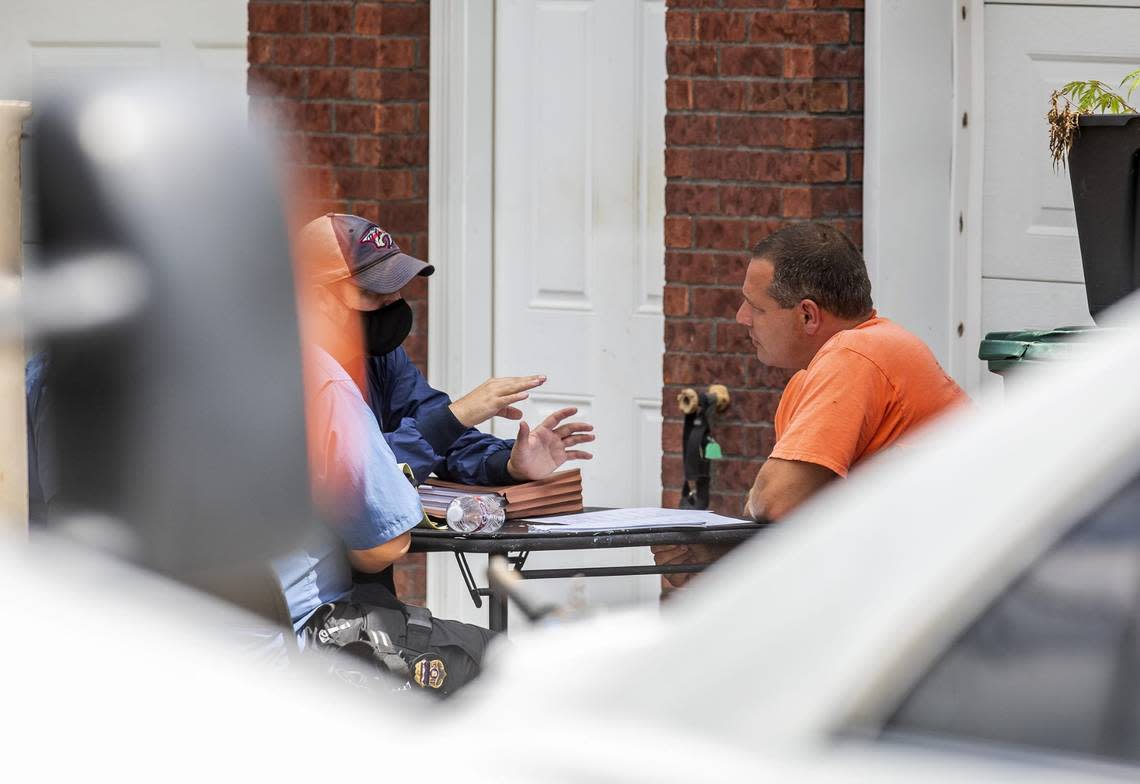Brooks Houck was indicted for murder by a Kentucky grand jury. Here’s how they operate.

After an indictment was handed down in September by a Nelson County grand jury against Brooks Houck for the murder of his former girlfriend, Crystal Rogers, many were curious about the role of grand jurors and how the process works, from beginning to end.
Houck, 41, was indicted on Sept. 20 for a charge of murder and evidence tampering, according to court documents. His indictment reads, “acting alone or in complicity with another, (Houck) committed the offense of murder by intentionally or under circumstances manifesting extreme indifference to human life wantonly causing the death of Crystal Rogers.”
The Nelson County native is alleged to have “destroyed, mutilated, concealed, removed or altered the physical evidence which he believed was about to be produced or used in such official proceeding, with the intent to impair its verity or availability in the official proceeding,” his indictment reads.
Houck was jailed last week and held on a $10 million bond. His original citation and court file lists charges as complicity to murder and evidence tampering.
How a case goes to the grand jury
A case can be presented to a grand jury in two different ways, according to Fayette Commonwealth Attorney Kimberly Baird. The first method is done by bringing the case up through the lower, district court following an arrest.
Once felony charges are filed against a defendant, a district court judge can hear evidence during a preliminary hearing to determine if there is enough evidence to send the case before a grand jury.
The second way to bring forth charges against a defendant is through direct submission, Baird said. Direct submission occurs when police or an investigating agency bring a case to the commonwealth directly and ask for a grand jury presentation.
In Houck’s case, district court proceedings were bypassed, and the case went straight before a grand jury and indictment was handed down. The decision for direct submission is typically made at the discretion of police and prosecutors.
A person may, however, waive their right to grand jury proceedings and agree to be prosecuted by a written charge of crime.
A grand jury is a pivotal and deciding factor to indict a defendant, bringing forward formal, criminal charges then transferring the case to circuit court.
What does a grand jury do?
Unlike a trial jury, grand jurors do not decide whether a defendant is guilty or not guilty. Their responsibilities are to determine what charges – if any – a defendant will face in circuit court or trial based on evidence presented to them by prosecutors. Jurors can either bolster or reduce charges that are brought forth by the prosecutors.
“(Grand jurors) have a lot of power, they can increase or decrease charges, add charges,” Baird said. “They have a lot of discretion to handle that case and we present the case to them, and tell them what the law is.”
Grand jury proceedings are done in secret, and consist of 12 citizens selected to serve at random. During the proceedings, evidence is presented by a commonwealth’s attorney who can call witnesses that often consist of law enforcement officials.
In Houck’s grand jury hearing, jurors heard testimony from Kentucky State Police Detective Bryan Luckett and FBI Agent Steve Kearny, according to court records.
The private sessions only include the jurors, the commonwealth’s attorney, witnesses and a stenographer. Judges or members of the defense team are not present for testimony or deliberations. A defendant can choose to testify to the grand jury by request, according to Baird.
After all evidence has been presented, the grand jurors will deliberate and decide whether to return an indictment. Nine of the 12 grand jurors must be in agreement to return an indictment, according to the Kentucky Court of Justice. If eight or fewer jurors agree, the case is dismissed, Baird said.
“They are the gatekeepers between the state and the citizen,” Baird said. “The have a very hard job. They hear one side of the story, and they are asking questions because nobody wants for some person to be indicted that doesn’t need to be indicted.
“Just because the defense isn’t testifying, doesn’t mean jurors aren’t doing their jobs. They are looking at the case critically, looking at what we have presented, and looking at what is the law.”


